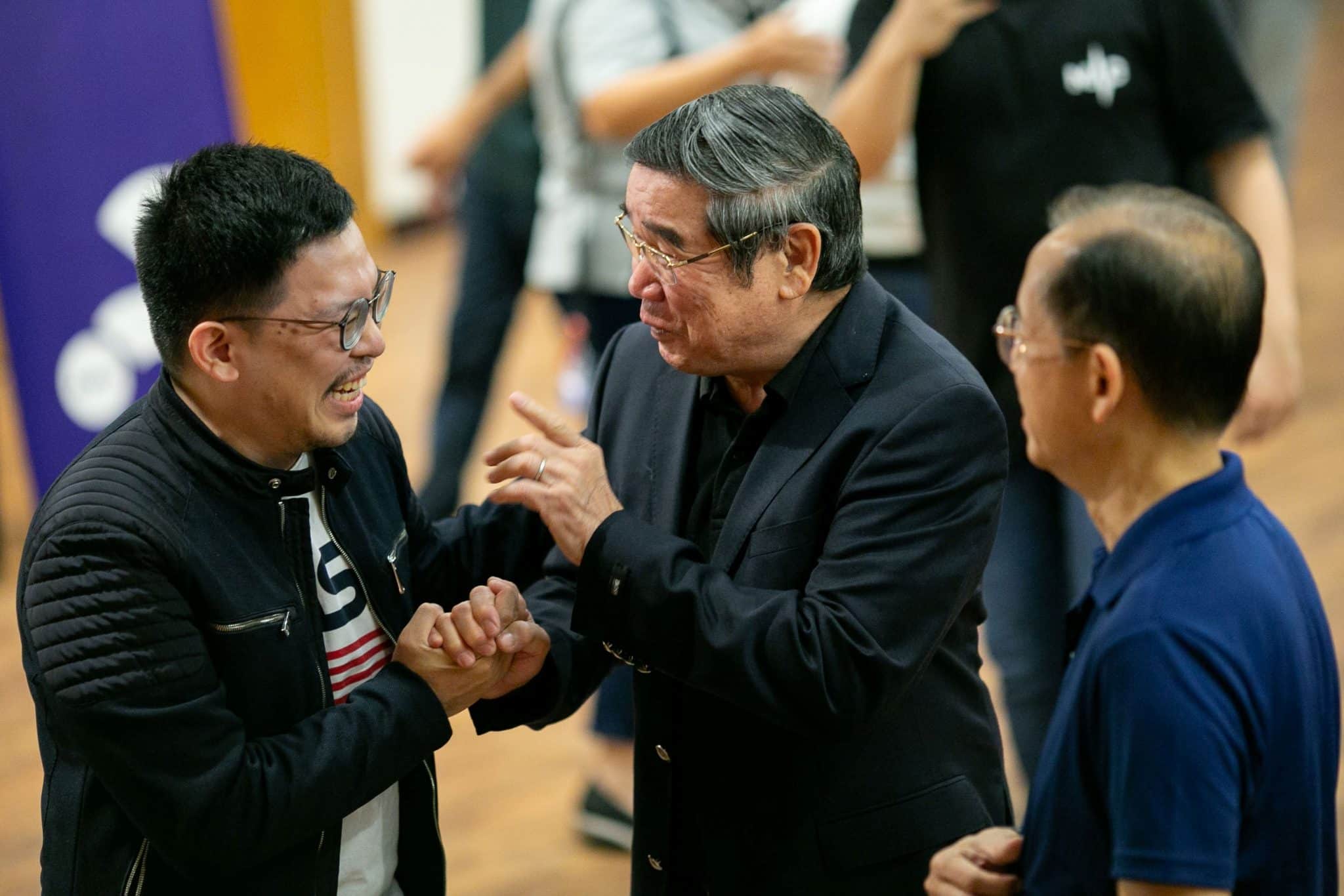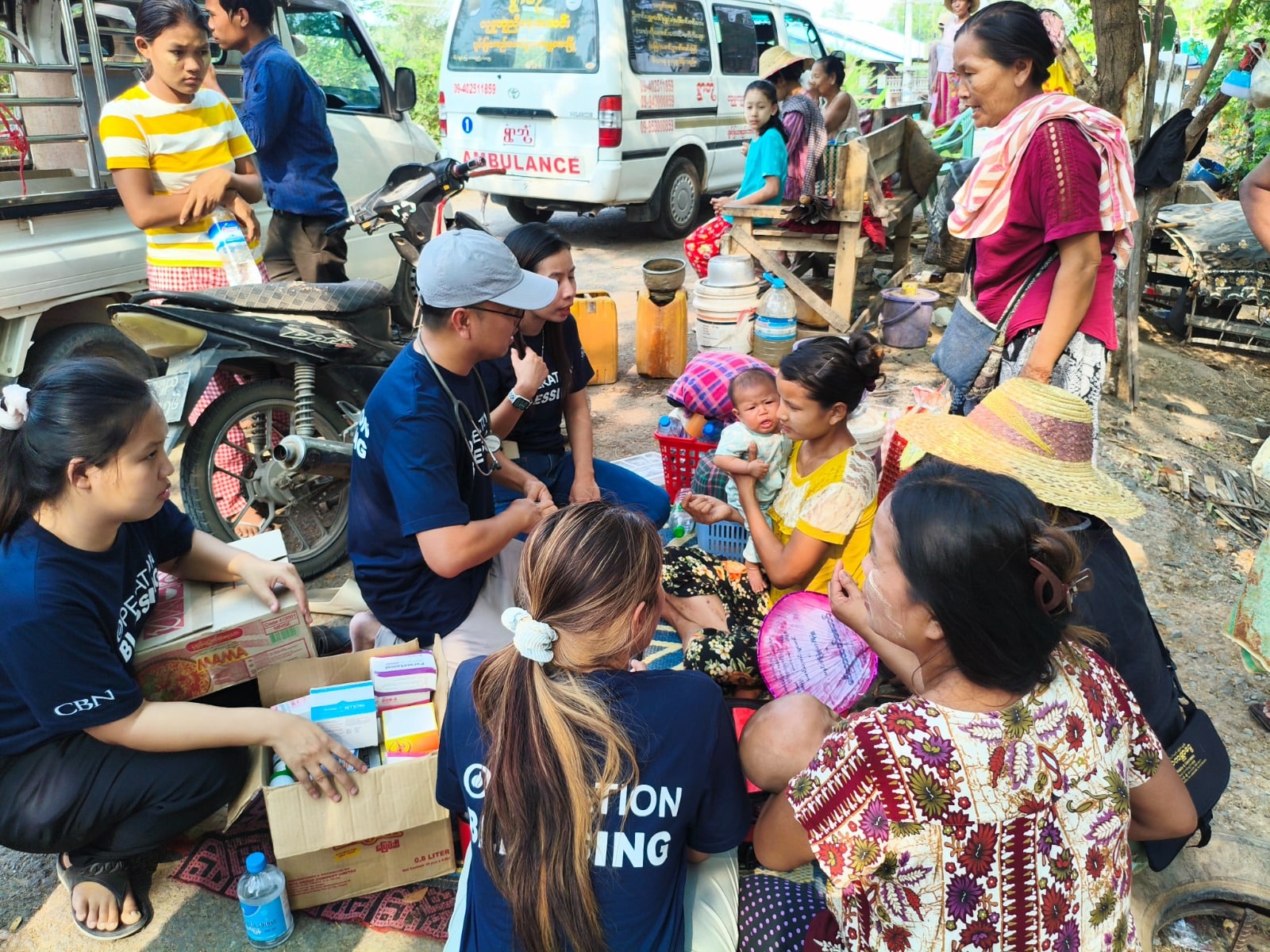Jackson Ole Sapit: From cowherd to Archbishop of Kenya
by Rachel Phua // March 15, 2019, 9:56 pm
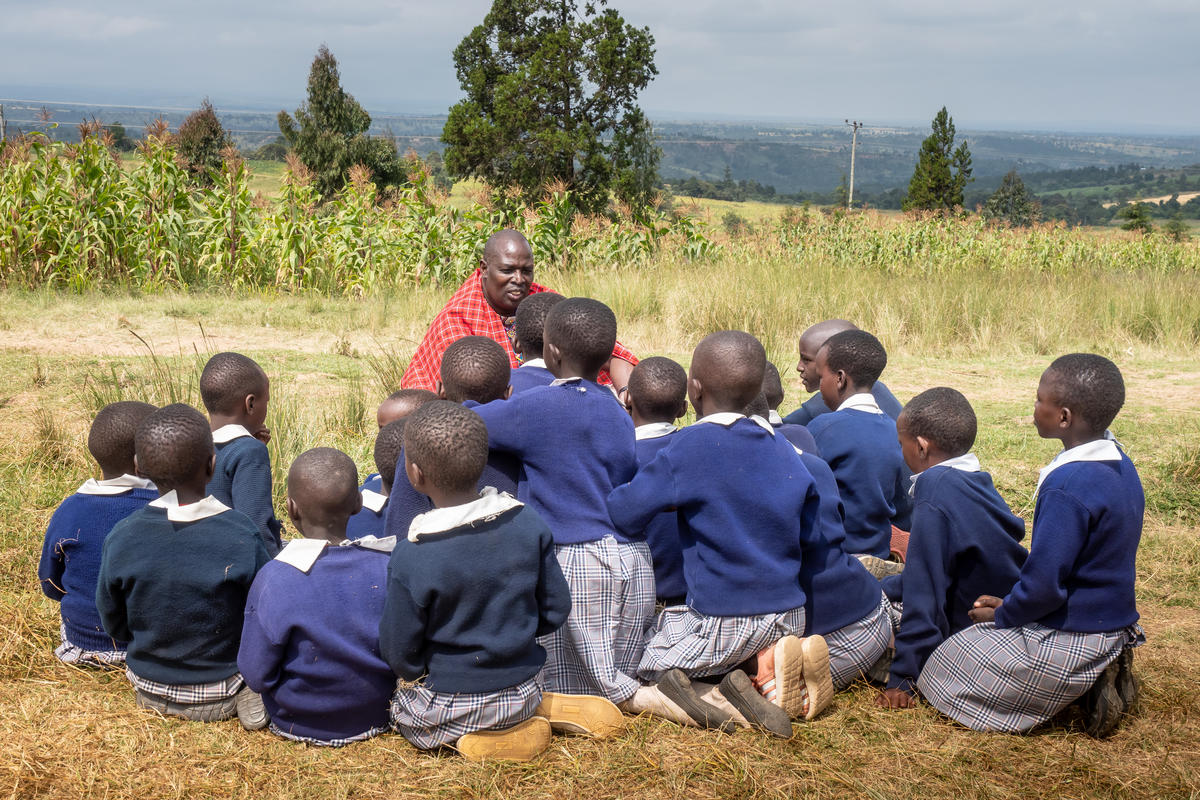
Ole Sapit speaking to children at Rotian Primary School, which he previously attended. All photos and video courtesy of World Vision Singapore.
Forced out of his home. Birthright taken away. Growing up without a father.
Jackson Ole Sapit tasted much bitterness before he turned five.
The Archbishop of Kenya, who was in Singapore to give a talk about child sponsorship under World Vision, grew up in Southern Kenya as part of a Maasai tribe.
As polygamy was part of the Maasai culture, he was born into a family of one father and eleven mothers. Siblings numbered more than 50, he thinks.
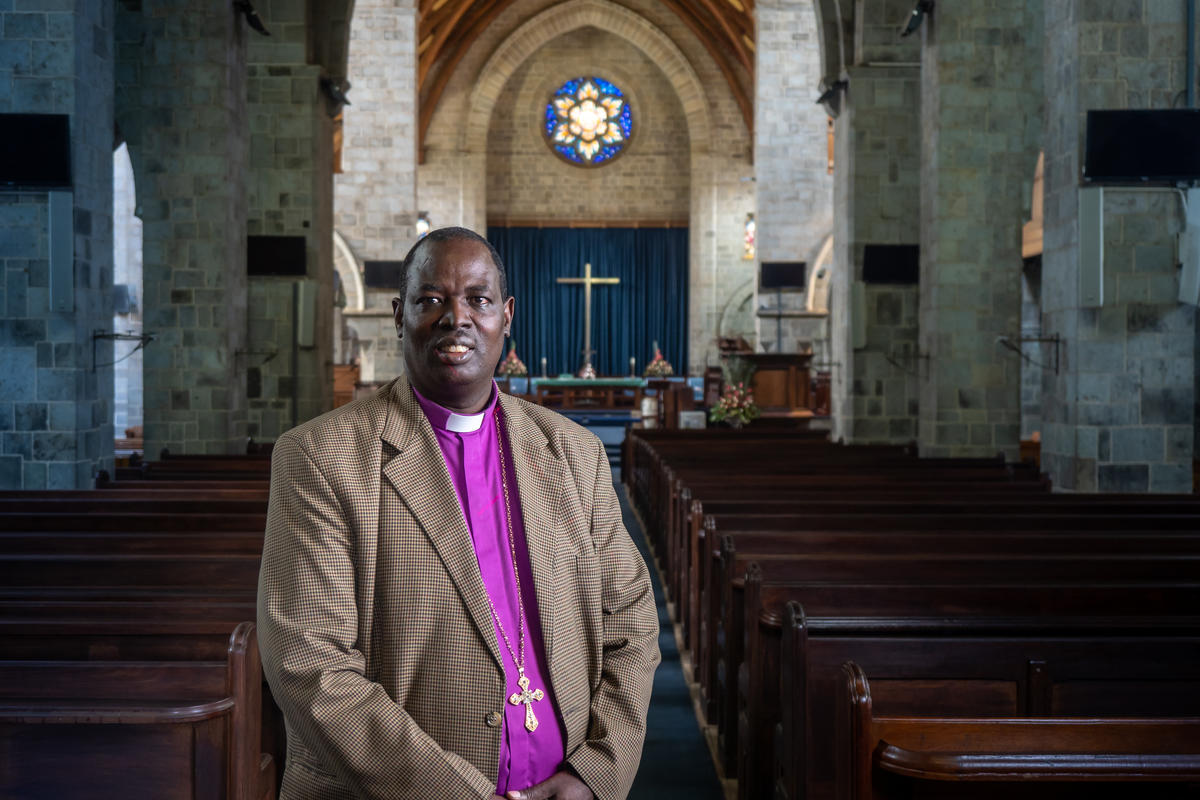
The Archbishop of Kenya, Jackson Ole Sapit, grew up away from his family home and in poverty. Through a child sponsorship programme and support from local Christians, he became a teacher and later a priest.
His father died in 1969, leaving his family in chaos. Land was a precious commodity then. His stepbrothers chased four of their father’s wives and their families away. His was one of them.
Ole Sapit, his mum and his three sisters were suddenly homeless. Fortunately, his six uncles living in another village were willing to house them. But, compared to his family, they were poor as their herd of cattle was killed by East Coast fever, he said.
Homeless and fatherless
Growing up, Ole Sapit, now 54, thought he would be like any other Maasai villager. As a male, he would be a shepherd with the guts to fight off wild animals in the bushes.
Suddenly, he had a set of uniforms, shoes, regular health checkups and food supplies he could share with his entire village.
But in 1973, the government made it compulsory for all children to attend school. Ole Sapit’s uncles were indifferent to the decision, thinking the children in their home would be sent back once they couldn’t afford the school fees.
The children lasted at least two years. Then in 1975, international Christian charity World Vision came to their school, offering to sponsor children without fathers or parents. Ole Sapit was one of the 10.
It wasn’t just their school fees that were sponsored. Suddenly, Ole Sapit had a set of uniforms, shoes, regular health checkups and food supplies he could share with his entire village when a drought hit in 1976.
When the dry spell ended, his sponsors gave money for his family to replenish their livestock.
World Vision’s support lasted till he finished high school.
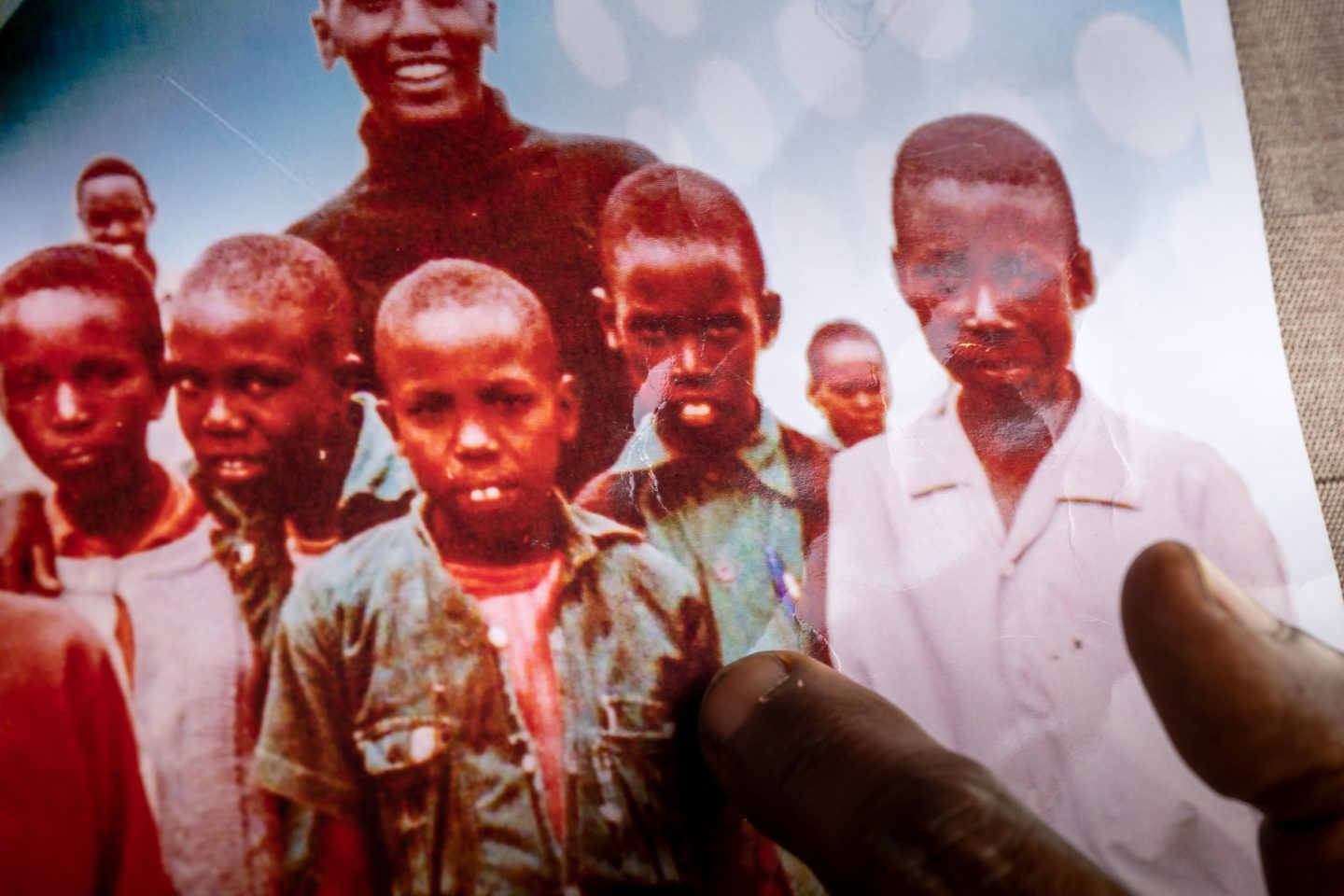
Growing up, Ole Sapit thought he would be like any other Maasai villager. As a male, he would be a shepherd fighting off wild animals in the bushes.
Ole Sapit saw his uncles as his own fathers. He never felt left out among his cousins. But when high school was over, his uncles arranged to sub-divide their land into individual parcels. Ole Sapit’s family got nothing.
“That’s when we began to see that we were different,” he told Salt&Light.
His family moved again, this time to his brother-in-law’s house in another village. That’s when the tides turned.
Broken for good
In this village, there was an English missionary who was running a mobile medical dispensary. She needed an interpreter, and picked Ole Sapit. Through the work, he was exposed to various Christian messages.
“I came home singing. I came home with a lot of hope.”
One day, as he was walking back home, he took a rest in a forest. There, he caught sight of a spider mending its web. All of the sudden, he became aware that God was rebuilding his web – his life.
The then-21-year-old began to trace his brokenness: He lost his inheritance, his father, his adopted family. He remembered Matthew 11:28-30, which the missionary had preached on.
“I asked Jesus: If you really exist, and you know my life is in pieces and I don’t know what my future holds – can you take this load off me and give me your direction?” he recounted.
Right after, he felt his body warm up, and an unfathomable amount of joy welling up. “I came home singing. I came home with a lot of hope.”
It was inconceivable. Over the years, Ole Sapit had harboured a sense of resentment and wished to become a warrior in order to fight his stepbrothers and “reclaim what we lost”.
Instead he became more active in church, particularly after the missionary left in 1987.
The local pastor took an interest in the young man and encouraged him to be an evangelist.
After a three-month training stint, he was sent to another village, where he started a nursery school in the morning, agriculture lessons in the afternoon, and evening adult literacy classes for men his age who never went to school.
The night sessions gave him the opportunity to impart the Word, using Bible verses to teach them how to read and write.
“I hoped that as we read the Word aloud, it would speak to them.”
The Father’s way
When a local pastor spurred him further to become a priest, Ole Sapit did a double-take.
He was afraid because of two requirements in particular. One, in Kenya, priests conducted burials and he was scared of seeing dead bodies. Two, he might have to pray in public at their national stadium during their country’s celebrations.
His tough childhood was just the Father’s way of drawing him into His bosom.
He took on the role anyway, getting his theological training at St Paul’s Theological College in Kapsabet, Kenya, and a social development masters at the University of Reading in the UK.
At the same time, Ole Sapit helped UK-based development agency Tearfund to implement its projects.
In 2004, he was elected as a bishop of the Kericho diocese in Southern Kenya, and in 2016, the archbishop of the Kenyan Anglican Church.
Ole Sapit said that it was when he was consecrated as a bishop that he finally saw God’s purpose for his life.
His tough childhood was just the Father’s way of drawing him into His bosom.
If he didn’t move in with his uncles, he wouldn’t have gone to school, gotten World Vision’s help, met the English missionary, entered church. It wasn’t his stepbrothers’ fault – it was God using them for His greater purpose (Romans 8:28).
He went back to visit his family to tell them all he had uncovered. “We forgave one another and had this a moment of embrace,” he said.
A faith complete
Having lived through poverty, Ole Sapit believes in prioritising social development ministries, though some Christians are afraid that will lead to the proliferation of the social gospel – social reform without evangelism.
“The spoken Word of God is what we preach, but the active Word of God is by doing acts of compassion.”
“My definition of the local church is to be ‘the conveyor and sustainer of discussions around human, spiritual and socio-economic transformation’,” he said.
Christians must go beyond the Sunday sermon to engage their neighbours and “talk about their forest, their incomes, the education of their children, the leadership around them, their health”.
“The spoken Word of God is what we preach, but the active Word of God is by doing acts of compassion and mercy and social transformation,” he added.
“I see myself drawing people to Christ by giving them hope, feeding the hungry, sponsoring children irrespective of their faith, with the hope that one day someone will remember – like me – that it is God who made it possible.”
He draws upon the teachings of Jesus in Matthew 25:31-46 and Isaiah 58:1-8. Our faith is not complete without elevating the poor.
No to “cosmetic compassion”
So what is the difference between theologically-driven social work and a secular one then? The answer is in its effects, said Ole Sapit.
A Gospel-centred initiative will offer a higher chance of a better quality life. The beneficiaries have some biblical insights and if they become Christians (Luke 8:4-8), the Holy Spirit (Titus 3:5) and Jesus (Hebrews 4:15) are pillars to resist temptation.
Without any knowledge of faith, a person can be brought out of poverty, but end up with the resources to partake in vices such as drugs or prostitution, or become oppressors themselves.
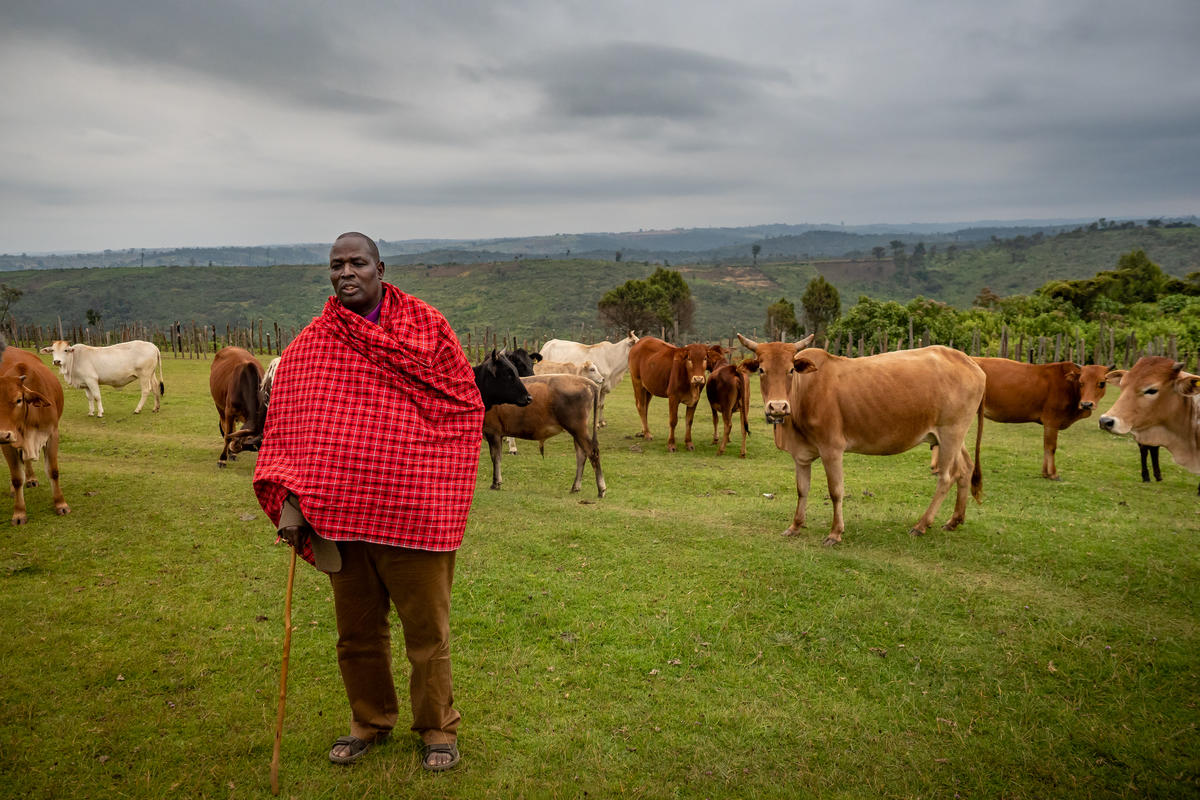
The archbishop at Olendeem village, in the high reaches of Narok County near Nairobi, the capital of Kenya. He says he loves it here, away from the bustle of the city, high in the mountains with its fresh air, where what you eat is raised and made by hand and the community is closely knit.
Even if organisations are prevented from evangelising due to the country’s laws or a decree from the donors, they should at least tell the beneficiary that “whatever has been happening is God remembering your situation,” he said.
“Tell the beneficiary that ‘whatever has been happening is God remembering your situation’.”
When Jesus healed the sick, he ministered to their spiritual side too (Mark 2:5).
On that note, people in first-world countries keen to help those in the developing world must be cautious about why they are giving too. Otherwise, it is patronising. Ole Sapit calls it “cosmetic compassion”.
He has met individuals from countries that colonised the world, and those people told him why they wanted to give was to “pay back for what our forefathers did”.
“But that means the reason for giving is just so they could remove any guilt,” he said.
Instead, he wants them to draw on the satisfaction of gratitude (1 John 4:19).
“Let us focus on the One who has given us the position to give, and just say, ‘Thank you, God’.”
We are an independent, non-profit organisation that relies on the generosity of our readers, such as yourself, to continue serving the kingdom. Every dollar donated goes directly back into our editorial coverage.
Would you consider partnering with us in our kingdom work by supporting us financially, either as a one-off donation, or a recurring pledge?
Support Salt&Light
